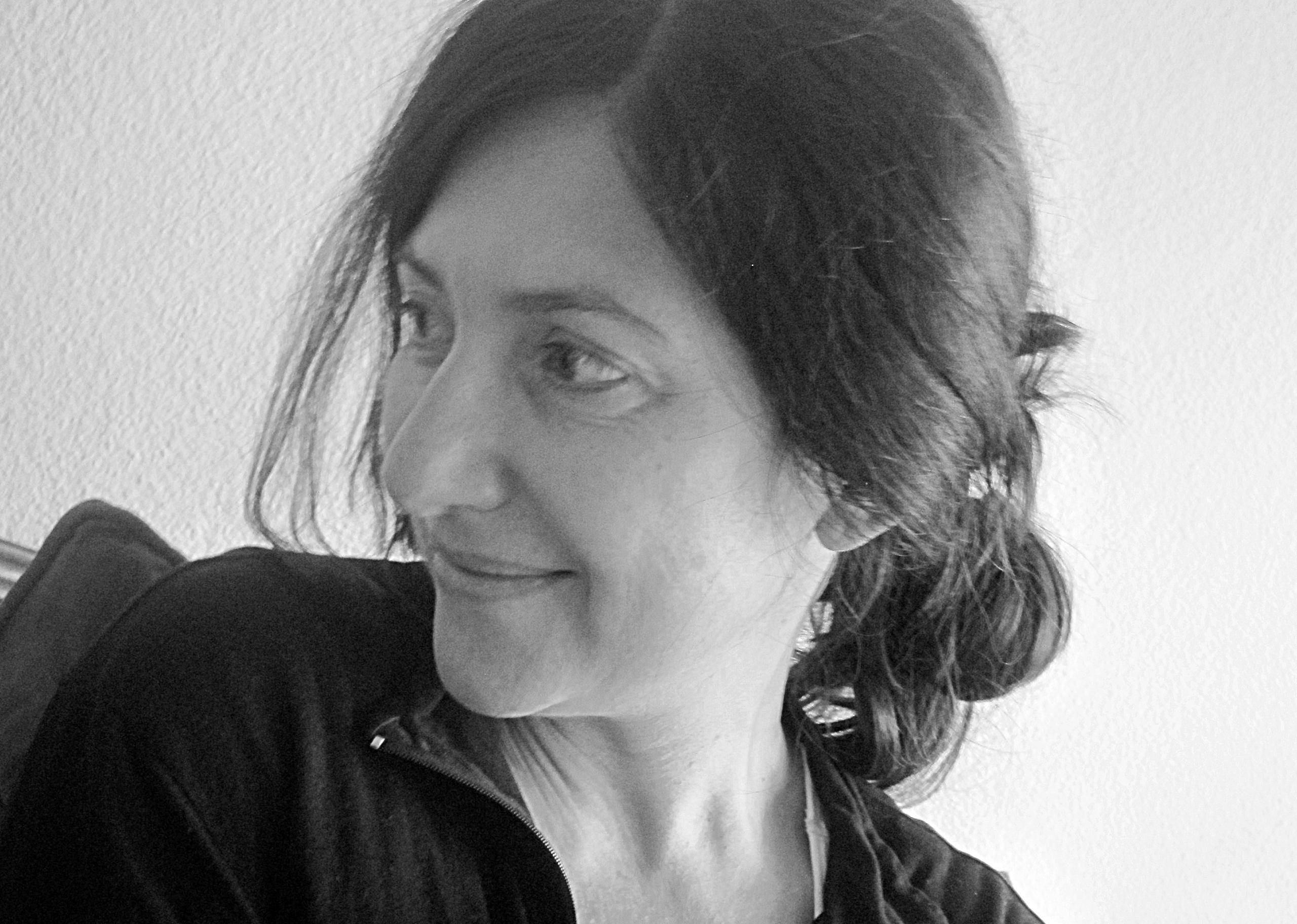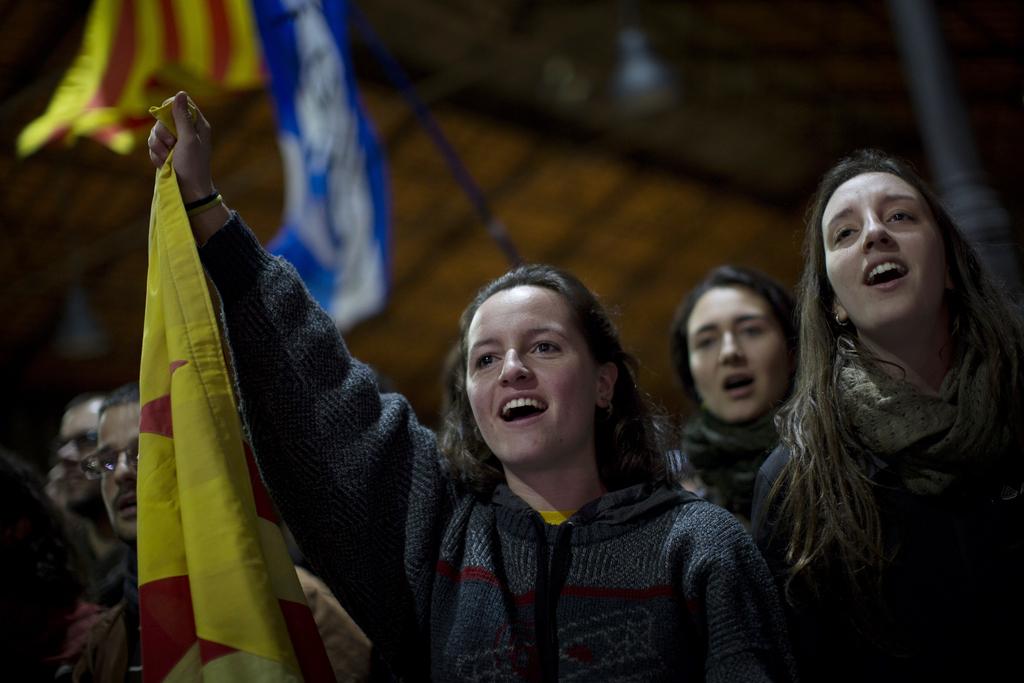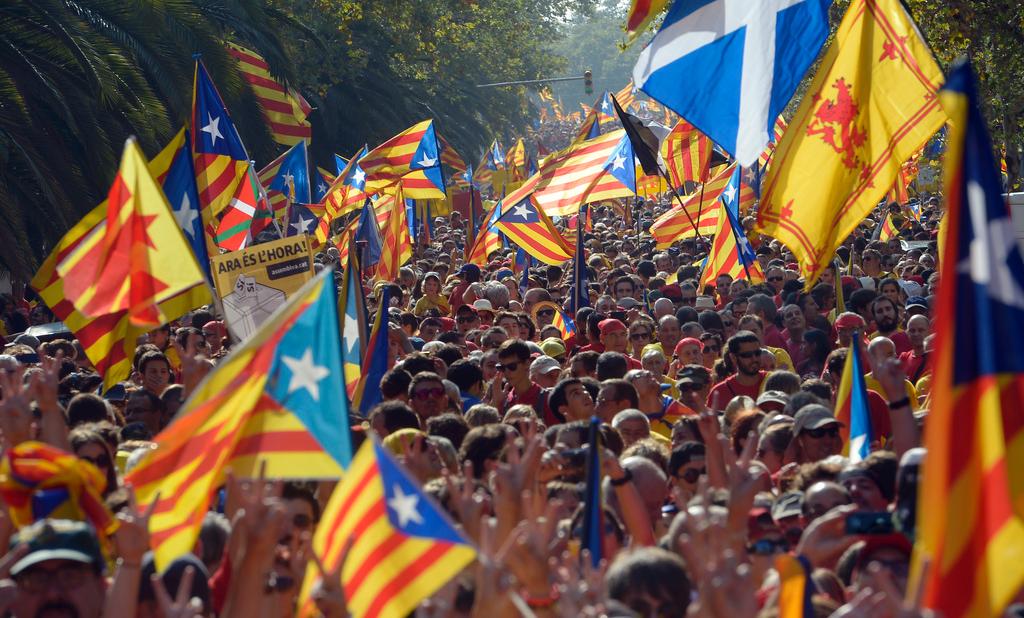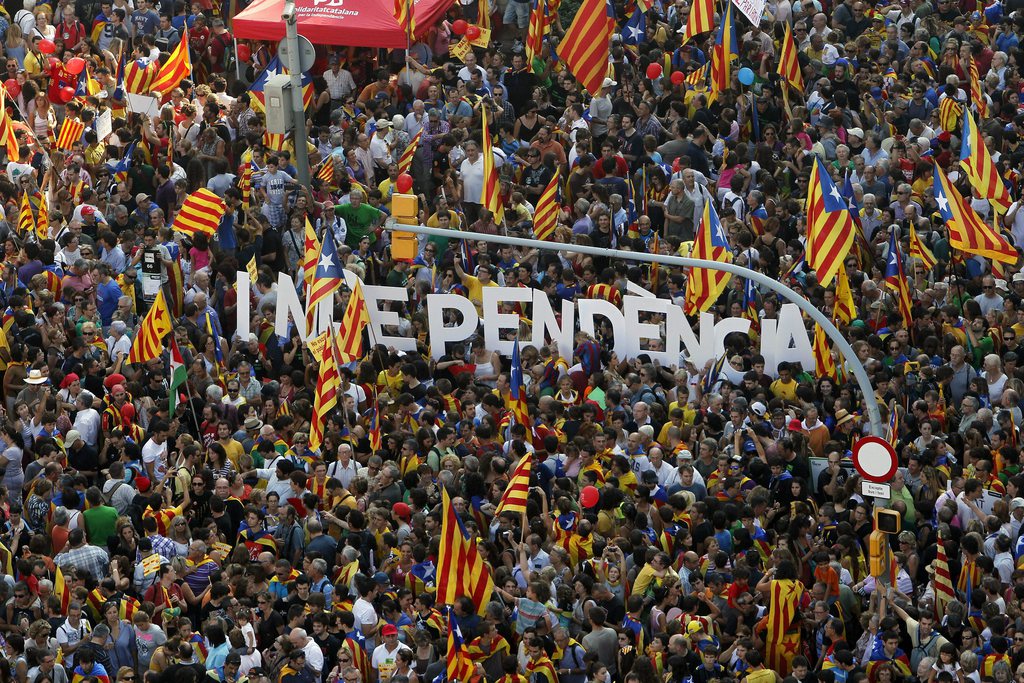Catalonia’s beleaguered democracy
Over two million Catalans took part in a symbolic independence vote on Sunday with 80% backing secession from Spain. But the non-binding result does not solve sovereignty issues. The problem is not the limits of the constitution, but rather incompetent political leaders, says Yanina Welp, a political scientist from Zurich University.
In the end there was no full-blown independence referendum in Catalonia. Following a request by the Spanish central government, led by Prime Minister Mariano Rajoy of the conservative Popular Party, the Constitutional Court suspended for a second time all preparations and campaigning related to an independence vote. In its legal challenge, presented on September 29, the attorney general said the Spanish constitution “gives priority to representative democracy over direct democracy” and “does not allow the Spanish people, let alone a section of the population, to initiate a constitutional process using a direct democracy instrument”.
Last week was intense for the central government as it used this main argument – the immutability of the constitution – to try to end the broad debate on the referendum and the roadmap laid out by pro-vote parties.
But the court’s defensive position was not enough. In mid-October Catalan President Artur Mas announced that an unofficial poll would go ahead. Despite further attempts by Rajoy’s government and the court suspension, an alternative ‘participative process’ took place on November 9 for Catalans to express their opinions, backed by the autonomous regional government, pro-independence parties and two civil society groups, Catalan National Assembly (ANC) and Omnium Cultural.
Voters were asked for their response to two questions. The first was: “Do you want Catalonia to be a state?” If answered affirmatively, the ballot paper posed a second question: “Do you want that state to be independent?”
The poll organised by 41,000 volunteers was open to Catalans aged 16 and over – normal elections are 18 plus – people born in Catalonia and anyone who could prove they were a resident for the past three years. Despite the uncertainties – no proper electoral framework, a consultative ballot and rumours of schools used for polling stations possibly closed – just over 2.3 million people took part in the ballot, including 13,573 Catalans living overseas. In the end, 80.76% (1,861,753) voted in favour of both questions, 10.07% (232,182) voted for the first and against the second, and 4.54% rejected both. Turnout was around 36% of the 6.3 million potential voters.

Transition to democracy
The current Spanish constitution from 1978 forbids citizens from initiating direct democracy mechanisms at national level as is possible in Switzerland and Italy or at regional levels in the United States and Germany. This is undoubtedly linked to the historical lack of political response to sovereignty conflicts. Nonetheless, under the previous 1931 constitution, citizens had the right to submit laws passed by parliament to a referendum if backed by 15% of the electorate. It also foresaw the need for referendums to validate autonomy issues.
The 1978 constitution (ratified in a referendum) opened the door to the transition to democracy after Franco’s long dictatorship from 1939 to 1975. Agreements were made between the major parties, which handed little power down to the people. The direct democracy mechanisms that have since been incorporated remain limited and can only be activated by the authorities (for example, consultative, mandatory or optional referendums relating to constitutional reform or regional autonomy). The constitution could be amended and alternatives found to allow for a vote but this is not a consideration for the current government.
Longstanding demand
In 2003, the former Basque president Juan Jose Ibarretxe (1999-2009) presented a controversial plan to transform the Basque region into a state “freely associated” with Spain. The Ibarretxe Plan, as it was known, would be achieved via peaceful and democratic means, including a referendum. But on November 28 of the same year the Spanish government, led by the Popular Party’s José María Aznar, reacted by pushing through changes to the penal code including an article punishing anyone who organises elections or referendums without parliament’s authorization with prison sentences or disqualification from public office. The Basque parliament approved the Ibarretxe Plan which then passed to Madrid but it was blocked at the national parliament level and not allowed for discussion. During the less confrontational climate under the reign of the Spanish Socialist Party (2004-2011), the issue became less of a priority for the government – at least temporarily.
Around this time, the leader of the Republican Left of Catalonia, Josep Carod Rovira, presented plans for an independence referendum that suffered the same fate as the Basque one. But rather than disappearing, this led to a series of informal consultations across the Catalan region between 2009 and 2011. It also led to the strengthening of two main activist groups, Catalan National Assembly (ANC) and Omnium Cultural. The aim of the ANC, which was established in March 2012, is independence through democratic and peaceful means. It is made up of over 500 regional groups comprising thousands of volunteers. Omnium Cultural has existed since July 1961, when a group of artists decided to fight Franco’s censorship of Catalan culture.
When the decision to hold a Catalan referendum was eventually suspended, local pro-independence forces teamed up to develop the “participation process to elicit the views of the Catalans on the political future of Catalonia” with the clear aim of proving they could hold a real referendum.
Roadmap
After over two million people took part in Sunday’s symbolic vote, Mas declared the participatory process a “complete success” and announced he would push for a meeting with Rajoy to negotiate a legally binding referendum. But the Spanish prime minister called the vote an “undemocratic and useless exercise, which has no legal effect”.
While European newspapers splashed the result and turnout figures across their front pages, the Popular Party insisted the numbers had “no validity as there is no way to check them, as it was a process with no guarantees, controlled by the pro-independence activists”.
Meanwhile, political tensions have been building on all sides. On the right, many say Rajoy should have acted more forcefully to prevent the vote, which is fuelling more extremist wings nostalgic for Franco.
In Catalonia, many of the organisers of Sunday’s vote hope Mas will now hold a plebiscitary election where independence is the decisive theme instead of relying on negotiations with the central government.
Oriol Junqueras, leader of Republican Left of Catalonia, says: “No one will convince me that we will get independence by negotiating with the Spanish state.” His party currently has the largest support in recent polls and is thus a key player for the Catalan government, which suffered from voter fatigue during this process.
In the meantime, the 36% who participated in the symbolic vote feel their democratic rights have been violated, while many Catalans who did not take part are frustrated with both the central government and the Catalan government, which used their resources on a project that didn’t give sufficient guarantees or space to opponents. This is a democracy besieged from all sides. Clearly the problem does not lie with the constitutional limits, but the ineptitude of the political leaders.
Opinion series
swissinfo.ch publishes op-ed articles by contributors writing on a wide range of topics – Swiss issues or those that impact Switzerland. Over time, the selection of articles will present a diversity of opinions designed to enrich the debate on the issues discussed.

In compliance with the JTI standards
More: SWI swissinfo.ch certified by the Journalism Trust Initiative




You can find an overview of ongoing debates with our journalists here. Please join us!
If you want to start a conversation about a topic raised in this article or want to report factual errors, email us at english@swissinfo.ch.